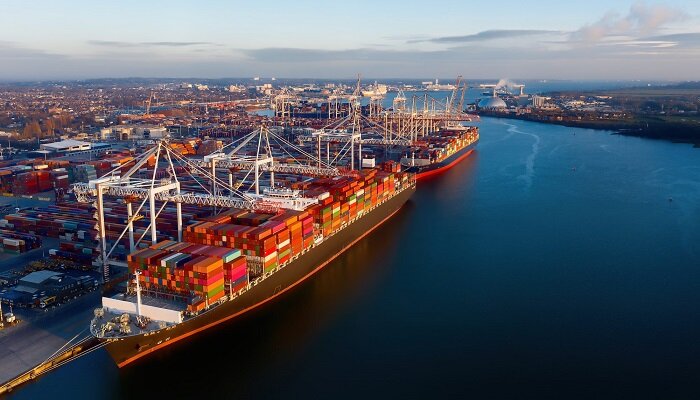The ports of LA, Long Beach, along with Shanghai are actively working towards moving towards net zero emissions and have sketched plans for a green shipping corridor so as to accelerate the reduction of emissions across the Pacific Ocean.
The ports view the proposal as an advancement towards achieving zero-carbon-emission ships. The scheme aims to showcase advanced decarbonisation tech and best management practices so as to enhance efficiency.
The partners have a strategy to come up with ships that offer reduced carbon emissions in the corridor by 2025. The partners are also working towards developing the world’s first containerships with zero lifecycle carbon pollutants by 2030.
Gene Seroka, who happens to be the Executive Director of the Port of Los Angeles, expressed that the trans-Pacific green corridor is going to act as an ideal instance of the global collaboration required to pace up the progress within the shipping sector. Executing measures to minimise emissions within this corridor will result in significant reductions. The majority of emissions related to transporting cargo by ship happen during the mid-ocean section of the journey within ports. The construction of this corridor will contribute to the reduction of mid-ocean pollutants while additionally expanding upon the efforts to decrease emissions within the ports.
According to Mario Cordero, the CEO of the Port of Long Beach, the roll-out of new and innovative vessel methods, in addition to the wider availability of sustainable fuels as well as improved practices within this green corridor, will have a significant impact on society’s shift to a more sustainable future. This impact will likely go far beyond the regions directly served by the ports.
Food waste in the supply chain contributes to the high prices
In accordance with a recent study, the food and beverage supply chain is being held responsible when it comes to the lack of decrease in food prices with regard to cost inflation.
It is well to be noted that a survey was conducted among 200 food and beverage shippers, displaying that almost half of them were forced to cancel entire shipments as a result of interruptions. In addition, a significant 89% of respondents reported that these delays had an adverse effect on their sales last year.
According to the study, the average food and beverage shipper incurred an annual cost of more than $6 million in losses and damage in 2022.
A survey says that a significant majority of respondents, i.e., almost 77%, believe that transportation costs play a crucial role in influencing shifts in product pricing.
Waste made up 53% of the total, and shippers had to account for the additional cost of wasted goods.
IATA all set to launch a new cargo data standard
The International Air Transport Association (IATA) has recently come with a strategic collaboration programme with the goal of incorporating various aspects of its digital cargo services.
As stated by IATA, the trade association representing global airlines, this initiative looks to establish a unified record of delivery.
The ONE Record standard shows a universal data model for sharing data by way of standardised and secure web APIs.
Their system is built on mature yet innovative data-sharing methods that closely comply with the best practices employed by top airlines. The statement says that this feature makes it readily available to IT teams and also service providers.
IATA envisions an effortless digital logistics and transport supply chain where data can be traded effortlessly and transparently between various stakeholders, groups, and also data platforms within the air cargo industry.
An IATA spokesperson says that the implementation of ONE Record will have the potential to transform the air cargo industry by enabling an entire digital shift. This, in turn, will open up fresh opportunities for additional services, apart from innovative business models.


































